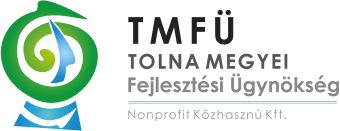A Digital Self-Scan for entrepreneurs which give companies competitive advantages and makes them sustainable.
Worldwide there are more and more circular initiatives and companies. Due to the changing environment and customer needs, being circular is valuable for their image, and it can give companies a competitive advantage. For those companies who want to become circular, yet do not know how to, often there is no clear local support. This is what the project “Circular SME Scan” (CSS) aims to bridge, to help those SMEs to figure out what they need to become more circular.
CSS is an European project which started in April 2021, lasts 2 year and is a collaboration between four partners; STRIA (Hungary, STRIA), EOLAS (Spain, EOLAS), BDF (the Netherlands, BDF), and AVACA (Greece, AVACA). STRIA as the coordinator of the project, introduced the initiative about increasing circular strategies by creating a self-scan where entrepreneurs easily could find information about circular approaches matching with their company strategy.
The goal of CSS is to connect digitalization with the circular economy, which becomes into practice in a Self-scan SMEs can use to see how circular they are and what they can do to apply additional circular strategies.
In order to provide the SMEs with valuable information, CSS designs a skill and competence framework which is based on circular business strategies. This is followed by the development of a Digital Self-Scan for SMEs to monitor their circular activities. The next step for CSS is to make a learning environment about the circular opportunities and to create the online platform including practices, inspirational resources and examples. The platform will consist of videos, podcasts, interviews, existing courses, and much more. Lastly, there will be guides for the stakeholders to help with the implementation of the Self-Scan and eventually seize circular opportunities.
The first year of the project was dedicated to in-depth research, as the self-scan and online environment needed to match the target group needs. The research consisted of three parts; a desk research, surveys among the target group, and focus groups including circular experts, SMEs and business support organizations. As a result, the partnership knows the needs and outlines of the self-scan, which are all elaborated in national reports.
For more information you can visit the CSS website, www.circularsmescan.eu and/or contact: Local partner information
